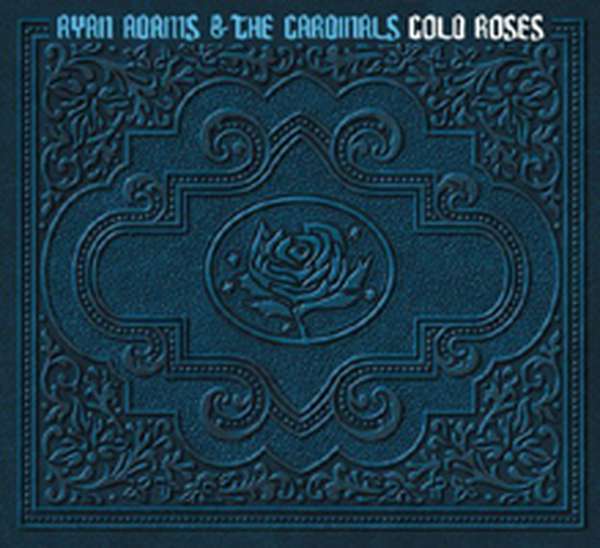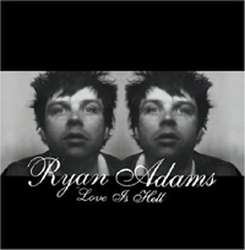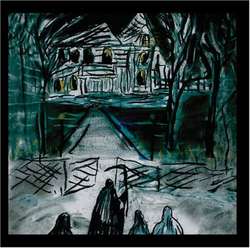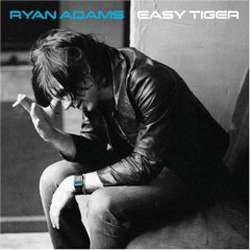The name Ryan Adams has become synonymous with the word "prolific," but not so much with the words "genius" and "brilliant"- those are thrown around by hardcore fans and earnest publicists. After releasing five full-length albums in a span of four years, his debut, Heartbreaker, still undeniably remains his best record to date, but he is far from regressing to elementary songwriting. Gold is adored by some and abhorred by others who claim it is overproduced and too schmaltzy. Demolition and Love is Hell almost didn't see the light of day, so they were like unasked for "gifts" to fans, and thus could not be critically judged. Rock N Roll is regarded as a product of nostalgia and cathartic release for the need to rock. On all these albums, he experiments with structure and allowing a song to take its own course. On his sixth album, Cold Roses, he is still in the process of finding that perfect balance between tight, structured songs and free-flowing, spontaneous songs.
In case anyone was questioning his prolificacy, in light of Bright Eyes's double release earlier this year, Adams established that he will be releasing three albums in 2005. The first of the three, Cold Roses, is a double disc with eighteen tracks which already banishes any doubts about his productivity. Freshly equipped with a new backing band, the Cardinals, Adams returns with rejuvenated energy. He has done some good ol' American scholar soul searching since the recording of the rushed, drug-addled Rock N Roll. In his famous "American Scholar" speech, Ralph Waldo Emerson said, "the ancient precept, 'Know thyself,' and the modern precept, 'Study nature,' become at last one maxim." With nature motifs and allusions strewn about the album like poppies in a lush green field, Cold Roses reveals Adams's reach into nature to flesh out his thoughts. Instead of lyrics with material references like "real like a plastic bouquet," he waxes poetic with "she runs through my veins like a long black river."
With producer Tom Schick, Adams rounds out the more country sound that has been slowly dissipating from his last releases. "Magnolia Mountain" sets the tone of Cold Roses with nature and religious references and a moseying tempo. The most unnerving thing in country music, aside from pitiful lyrics, is the lap steel with its shrill reverb that never seems to end. Multi-instrumentalist Cindy Cashdollar, however, does a good job with the lap steel by playing non-obtrusively, allowing its reverb to drift into the flow of the other instruments. Adams softly plucks an accompaniment to his falsetto with his acoustic guitar in "Meadowlake Street," while the Cardinals rest in the background. He cues the band in right in time to support his sudden burst of inspiration towards the end of the song.
Although nature can be truly inspirational, old habits still die hard: Adams drunkenly demands, "Give me a beer" before commencing the anomalous "Beautiful Sorta," which would have better suited on Rock N Roll. This lo-fi quality recording sounds like he is giving an impromptu performance, fueled and inspired by alcohol, at a local smoky bar. The influence of alcohol is evident with marked repetition and the lack of priority of staying in tune. The decision to place "Beautiful Sorta" in the middle of the first disc exacerbates how out of place and sub-par it is compared to the other songs.
Credited as providing vocals and "(listenable) piano," singer-songwriter and now tour-mate Rachael Yamagata guests on the rolling single "Let it Ride." "Listenable" was interpolated with parentheses, because her contributions only blend in to complete the warm colorful chords rather than ostentatiously boasting a superfluous piano solo. A supporting band can only provide so much, so if you want to get something done, you do it yourself. Adams takes upon all the instrumental responsibilities in "Life is Beautiful" to clearly get his vision across. Gravitating toward a Gold sensibility, without an extraneous long outro, he produces a radio-friendly chorus and a more apparent blues influence.
These songs are hard to latch onto at first. Connections require more effort, possibly because of the nature motif - the high pollen count makes it hard to appreciate and understand what he is getting at. Adams's usual specialty is his wounded, lovelorn ballads, but his country pop songs excel more than the few ballads on this album. "How Do You Keep Love Alive" has a strong enough title to start the waterworks flowing by the time the first note is played, but in the end the song comes off too melodramatic to the point of insincerity. Good at its best and mediocre at its worst, the album is not quite a masterpiece: it merely expands Adams' ever-growing collection of listenable songs.




